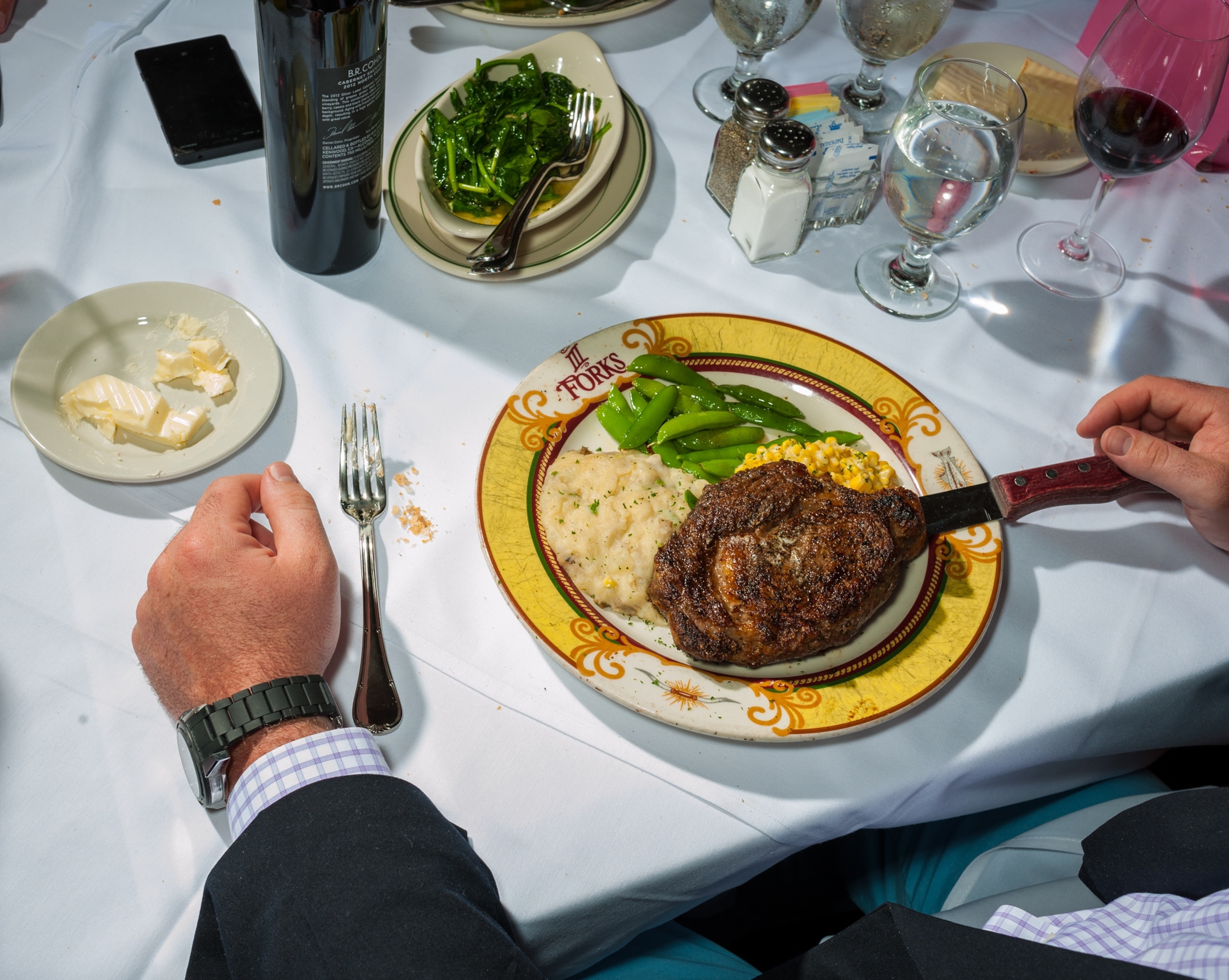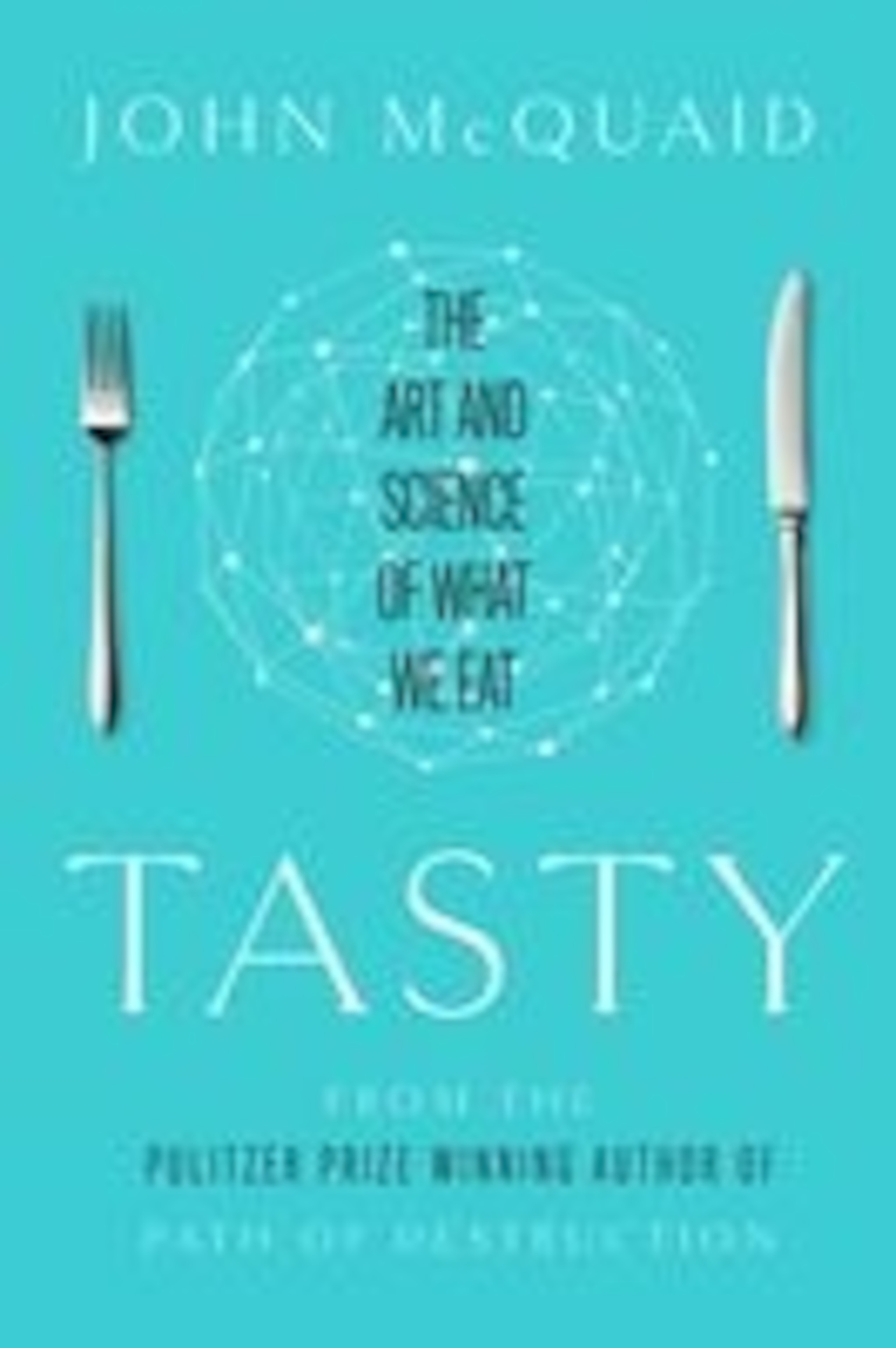
From Campfire to Haute Cuisine: How Food and Flavor Drove Human Evolution
"We owe our existence and our humanity to taste," says author John McQuaid.
Taste is often dismissed as the most primitive of the senses. But new research reveals it is in many ways the most subtle and complex of them all.
Reporting from kitchens, farms, restaurants, and science labs, Pulitzer Prize-winning author John McQuaid, author of Tasty: The Art and Science of What We Eat, tells the story of how taste and food drove human evolution. Talking from his home in Maryland, he explains how human evolution and taste are intimately linked, why we like a juicy burger, and why sugar is wrecking our taste buds.
You open the book with a description of something called the "tongue map." Tell us about that.

The "tongue map" was a fixture of elementary school experiments where you would be handed a bunch of cups containing a bitter-sweet, salty-sour solution, the four basic tastes that the tongue can detect. According to this map, different parts of the tongue could detect each taste. The tip of the tongue detected sweet; the back of the tongue, bitter; and the sides, salty and sour. You would swish these things around in your mouth and discover the anatomy of the tongue. But the tongue map proved to be completely false. [Laughs]
Later, as scientists began to develop the tools to unravel the anatomy of the tongue down to the molecular level, they were able to discover exactly how it worked, which is much more complicated than that early map. Taste is detected through tiny proteins called taste receptors, which are embedded in the taste buds. These taste cells respond to each of the basic tastes. So, every part of the tongue can detect every taste.
Recently, they have discovered an anatomy at the molecular level that can detect fat and produce a unique and pleasurable sensation in the brain. Some people think that there's also a taste for carbohydrates, such as starches, which no one really thought before.
You say "flavor embodies the basic savagery of being an animal." We taste, therefore we are?
Taste evolved in order to provide gratification from food. If you are an animal, you would go out and seek out food, and eat it, and stay alive. This has been true for hundreds of millions of years. Today, we live in a society that papers over those basic urges, but the urges are still there. They're there every time you bite into a hamburger or drink a glass of wine. The anatomy of your brain and body responds, and these ancient impulses take over.
We think we're dining in a refined restaurant, supping on the finest food and drink available, but actually we're just animals devouring a kill.
You go as far as to say that "we owe our existence and our humanity to taste—and, in many ways our future depends on it, too." Is this just a blurb for the book cover?
No. [Chuckles] In the course of researching the book, I came to believe that it's absolutely the case. This is an underappreciated aspect of taste and flavor. Because taste and flavor are so mundane, something we experience every day, people don't think about it in these terms. But at each point in the evolution of humans, taste provided a kind of bootstrapping mechanism for larger brains and smarter strategies for getting food.
As food became more gratifying, these strategies improved. For example, cooking changed the taste of food. So when it was invented, somewhere around a million years ago, there was a whole revolution in flavor. This has been tied by scientists to humans developing larger brains and the human body changing shape to become more like we are now. So, the emergence of human culture and civilization both—on some level—rotate around food, and food rotates around flavor.
Taste has been kept on the margins of scientific enquiry for the past two thousand years. Why? And what's changed?
Partly what we were talking about earlier. There's a certain anxiety about the savage nature of eating and flavor. Philosophers and scientists have traditionally regarded taste as a base sense, whereas vision or hearing were construed to be a higher sense, a refined sense.
The other problem was that until recently no one had the tools to untangle how tastes really worked. You could study optics, or how light worked, back in the Renaissance. But you need very sophisticated tools to study genes and molecular biology. That's the reason why things are changing fast today. We're getting all these fascinating new insights into taste and flavor.

One of the truly shocking statistics in the book is that Americans now consume 40 teaspoons of sugar per day. What will be the consequences if this sugar binge continues?
We're already seeing terrible consequences in high obesity. Sugar has been linked to diabetes. Type 2 diabetes has gone way up, and there are all sorts of other health problems that have been linked to sugar: metabolic issues, cardiovascular issues. It's a public health problem that no one really knows how to solve.
Soft drink companies are responsible for a lot of that extra sugar. And people are starting to recognize that this is a problem and looking for other things to drink. As a result, soft drinks have suffered losses in their sales.
But sugar has addictive properties. It hits the pleasure centers of the brain, rather like cocaine. It's not exactly the same thing. But as you eat or drink a lot of sugar, the body becomes less sensitive to it, like addiction. So to get that sweet taste, you need to have more sugar. How you break that is very difficult.
Many food lovers will raise their eyebrows at your assertion that "the burger is the culmination of 5,000 years of culinary history." Isn't that how bush meat was cooked 5,000 years ago?
[Laughs] I don't know if it was ground up and grilled in quite the same way! But it's a good question. It has more to do with the availability issue. For most of the period where humans have been living in settlements, roughly the past 12,000 years or so, most of them didn't get much meat, because meat is relatively hard to come by, unless you're living in a herding society.
Only in the past hundred years or so has meat become more generally available, thanks to the development of the industrial food system. That changed the whole dynamic that had existed for thousands of years. Suddenly, everybody who's living in a fairly well-off society, and many in non-well-off societies—McDonald's are everywhere—can now get meat as the center of their meal. Previously, only rich people and kings and their courts could do that. It has been a real revolution, which has changed food and the tastes people have. People have developed a taste for much richer food than they had in the past.
The meat industry in America is famously litigious. Did this prevent you taking a more critical stand toward mass-produced beef?
I was looking at the ordinary experience of a consumer of food and how that has changed. What does it mean to be eating more meat? I'm not sure if that's something that the meat industry will get upset about. Perhaps they will.
But in terms of the taste issue, it raises a lot of issues about how human biology works and is fascinating for that reason. I don't know if I'm going to offend anyone in the meat industry by kind of exploring these issues. Because I think it's important to explore them. And I hope that people will be educated by what I've written.
I just bought some carrots at my local farmers market, and they in no way resembled the woody, bitter things you buy in a plastic bag.
I was more looking at the scientific question of taste rather than where food comes from. One thing I did look at, though, is the decline of the taste of food [raised] in industrial systems. For example, since the tomato has been a mass-produced farm product, it has lost a lot of the flavor that it once had a hundred years ago. The tomatoes we get in the supermarket look fantastic. They're red, they're bulging, but they don't really taste that great.
I talked to this one professor at the University of Florida who has launched a project to try to recover this lost flavor of the tomato. They've decoded the genome of the tomato, and gathered heirloom tomatoes, trying to engineer a tomato that tastes really good but is also capable of being produced by farmers and, ideally, mass produced.
How has writing this book changed the way you live and eat?
That's a good question. Prior to doing this I didn't think a whole lot about flavor: where it came from, how my body was responding, or how a particular food was engineered. It's made me a great deal more skeptical about sugar and about diet foods, also.
One thing that has come up recently is that even diet drinks with artificial sweeteners may be messing with the body's metabolism in a way that is similar to sugar. So, even with no calories, they could be causing a diabetic syndrome.
All of these things are very alarming when you look into them. I used to be a big Diet Coke drinker, but I've curtailed my consumption. At the same time, I have developed a much greater appreciation of what traditional food producers and chefs do in terms of all of the craft that goes into making, for example, a cheese. I visited an artisanal cheese-making facility in Vermont and saw the great care that goes into making it and the complexity of how they manage these microbial communities, which make the flavor.
Now every time I taste something that has been made in a careful way, it's a much different experience. I have a much greater appreciation. I try to savor things more assiduously than I did before.
Simon Worrall curates Book Talk. Follow him on Twitter or at simonworrallauthor.com.